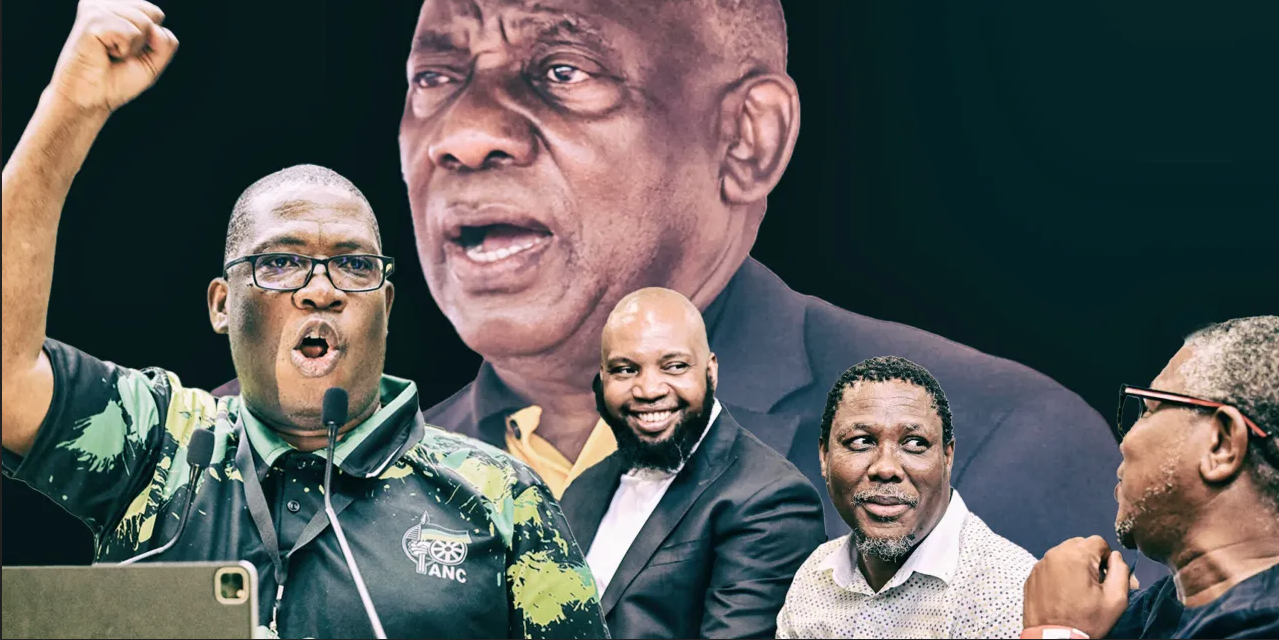As the ANC’s National Executive Committee met last night, before this weekend’s January 8th Statement by President Cyril Ramaphosa, they would have had many problems to confront.
On Saturday afternoon, President Cyril Ramaphosa will face ANC supporters in the Khayelitsha Stadium in Cape Town at the official celebrations to mark the party’s 113th birthday and give the traditional “January 8th statement”.
The stadium has a capacity of only 22,000, a far cry from the 100,000 that the FNB Stadium can hold, and that the ANC used to fill easily.
While the ANC has said that this is about wanting to host the event in a township, the symbolism of a smaller venue (especially if it is not filled) will hang over the event.
The ANC is much diminished after last year’s election, and this will be reflected in the amount of media coverage this weekend, and in how many voters will be paying any attention to the event.
This is the most fundamental problem the ANC’s leadership has to navigate this year: it no longer dominates our politics like it used to.
Unfortunately for the party, one of the major reasons for this has been the general fracturing of our politics, as it starts to better reflect the political diversity of voters.
ANC leadership in KZN and Gauteng in the air
Last year it held two meetings at which the fates of the ANC’s leadership in KZN and Gauteng were to be decided. Both times the final decision was put off. Eventually, officials said a final decision would be taken early this year.
But this decision has the power to be momentous and could even change the entire dynamic of the national coalition. This is first because the national ANC cannot be sure that some in the KZN leadership did not work to help MK during their election campaign.
As a result, pushing the KZN leadership away from the national leadership could push them into the arms of MK. And this is a huge risk for the National Executive Committee (NEC). It could, perhaps, even see the KZN ANC pulling out of the current KZN provincial coalition with the IFP, the DA and the NFP, and trying to form a new provincial government with MK.
In short, the provincial leadership could simply go rogue, with all sorts of difficult consequences.
Then, in Gauteng, the defining issue could be the provincial leadership’s apparent refusal to work with the DA in that province. Instead, Premier Panyaza Lesufi and others have preferred to work with the EFF in metros such as Joburg and Ekurhuleni.
If the NEC were to disband this leadership, it might open the door to the DA being invited to join the provincial coalition there.
All of this will play into the much bigger debate the ANC has refused to have in public, which is about whether it was the right decision to work with the DA, rather than MK and the EFF.
This debate may well emerge in some form at the party’s national general council, currently due to be held later this year.
When ANC delegates finally gather, it may finally be impossible for leaders to keep the lid on this debate, leading to a very difficult situation. Certainly, delegates themselves may feel they have the right to express themselves on the issue. This has the potential to be simply unmanageable and could provoke a massive split among delegates.
January 8th statement a diplomatic egg dance
One of the tasks of the NEC’s January 8th message will be to try to set the right tone for this debate and to perhaps try to find a way to mollify those who oppose the current coalition.
While all of this is going on, the ANC’s leadership may also need to focus on perhaps another difficult task, convincing voters to come back to it. Considering that local elections are due to be held next year (although they could legally be in early 2027), time is of the essence.
As yet, there is no evidence that the ANC is concentrating on these polls, despite the very clear evidence that much is at stake.
For example, in Joburg it is entirely possible that the ANC falls to be only the second, or even the third or fourth biggest party. The same could happen in the other two Gauteng metros as well, as parties like the DA, MK, Action SA or others reap the rewards of the ANC’s misgovernance.
It would seem the only way in which the ANC could reclaim many of the votes it has lost is if MK were to implode. While this is entirely possible, it is always a dangerous position for a party to pin its hopes on the prospects of another party.
The implications of a poor showing in the local elections are massive. Other parties would of course smell blood in the water, and thus be encouraged in their campaigning.
In other words, the results of the local elections will be an important signpost to what could happen in 2029, and whether the ANC will actually be able to survive as the biggest party in our politics.
The work for that campaign needs to start very soon. All of this shows how much has to be done by the ANC’s top leadership, and how little time they have to act. This then underscores how important Saturday’s address by the President will be, and how carefully the NEC will have to formulate it. DM
Stay informed with The Namibian – your source for credible journalism. Get in-depth reporting and opinions for
only N$85 a month. Invest in journalism, invest in democracy –
Subscribe Now!










